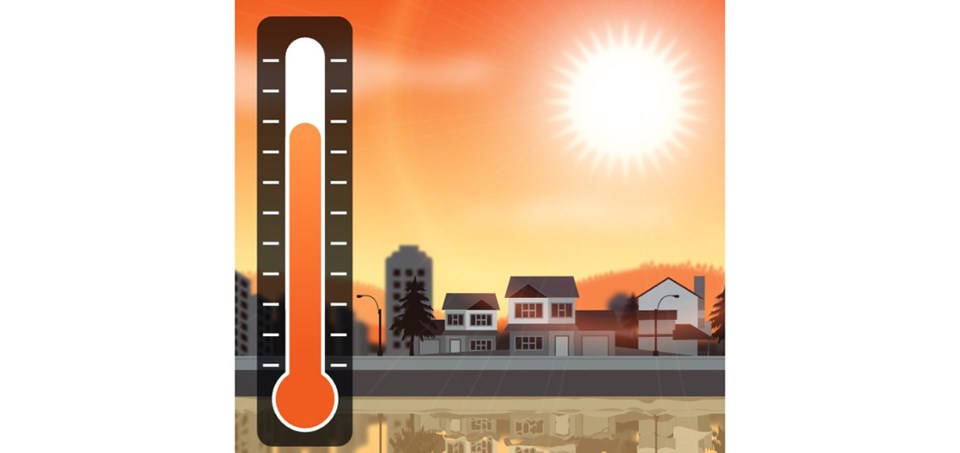With the upcoming hot weather in the forecast Northern Health advises that it's time to learn about the different types of heat alerts and prepare your space for heat as provided at BC's public preparedness website for severe weather.
Heat events, also known as heatwaves, are a series of days that are hotter than normal temperatures for the region.
As the climate changes, heat events will become more frequent, longer, and hotter in British Columbia.
Heat events can affect anyone's health, but extreme heat can pose a very high risk of severe illness for some people if they do not have access to a cool indoor environment.
Heat can build up indoors when the outdoor temperatures are climbing every day, and the situation can become dangerous.
The longer the heat lasts, the more dangerous it becomes.
When a heat warning is issued it means daytime and overnight temperatures are higher than usual, but they are not getting hotter every day. Take the usual steps to stay cool.
When an extreme heat emergency warning is issued it means daytime and overnight temperatures are higher than usual, and they are getting hotter every day.
While everyone can benefit from planning and preparing for extreme heat emergencies, the following people are especially at risk if they do not have access to air conditioning and need to be prepared and supported:
- seniors aged 65 years or older
- people who live alone
- people with pre-existing health conditions such as diabetes, heart disease or respiratory disease
- people with mental illness such as schizophrenia, depression, or anxiety
- people with substance use disorders
- people who are marginally housed
If you live alone and need extra help pick someone to check in on you when temperatures rise.
They could take you to cooling centres or help with cooling measures in your residence.
- people who work in hot environments
- people who are pregnant
- infants and young children
- people with limited mobility
Activate your emergency plan as explained at BC government public preparedness.



